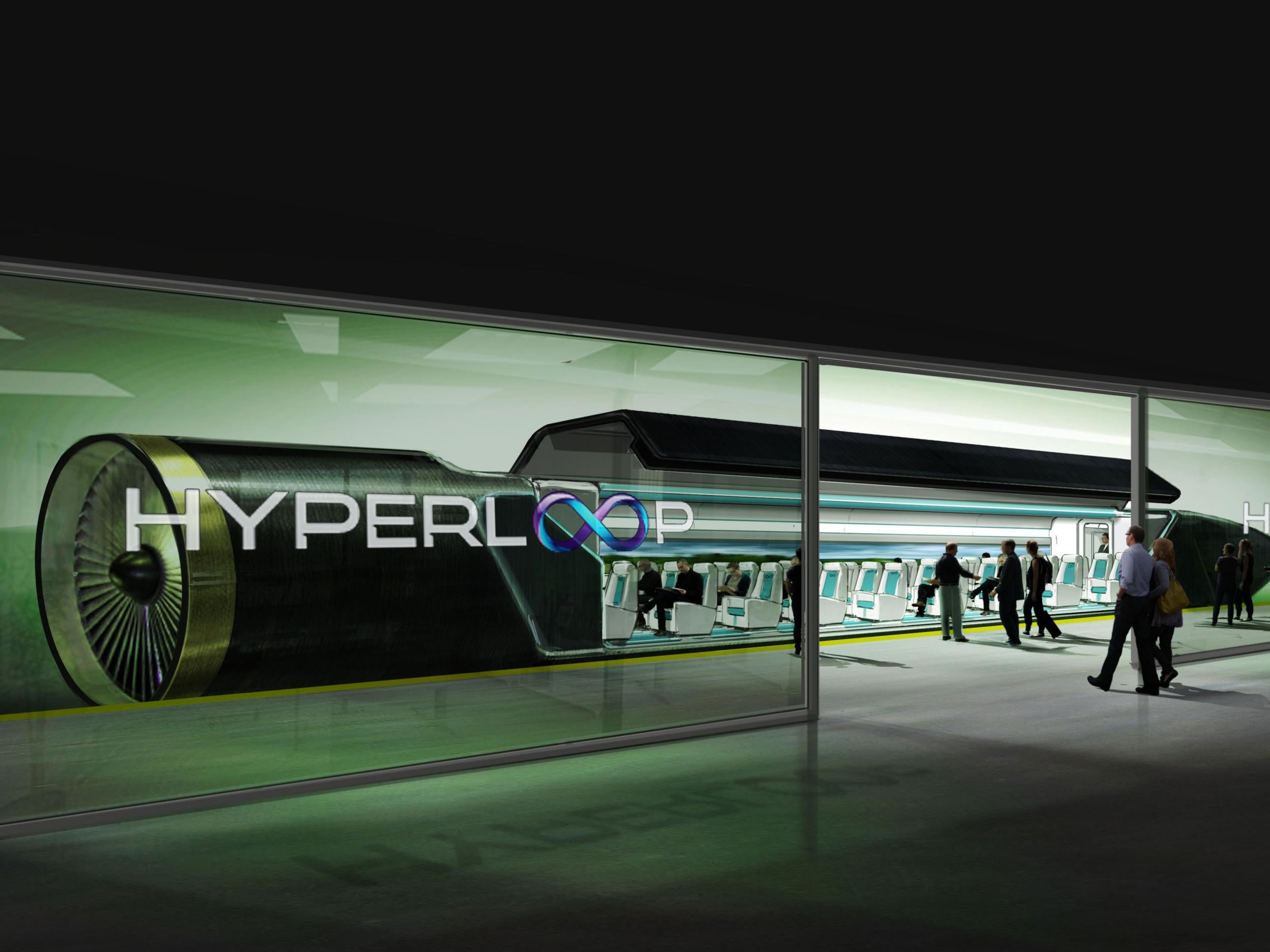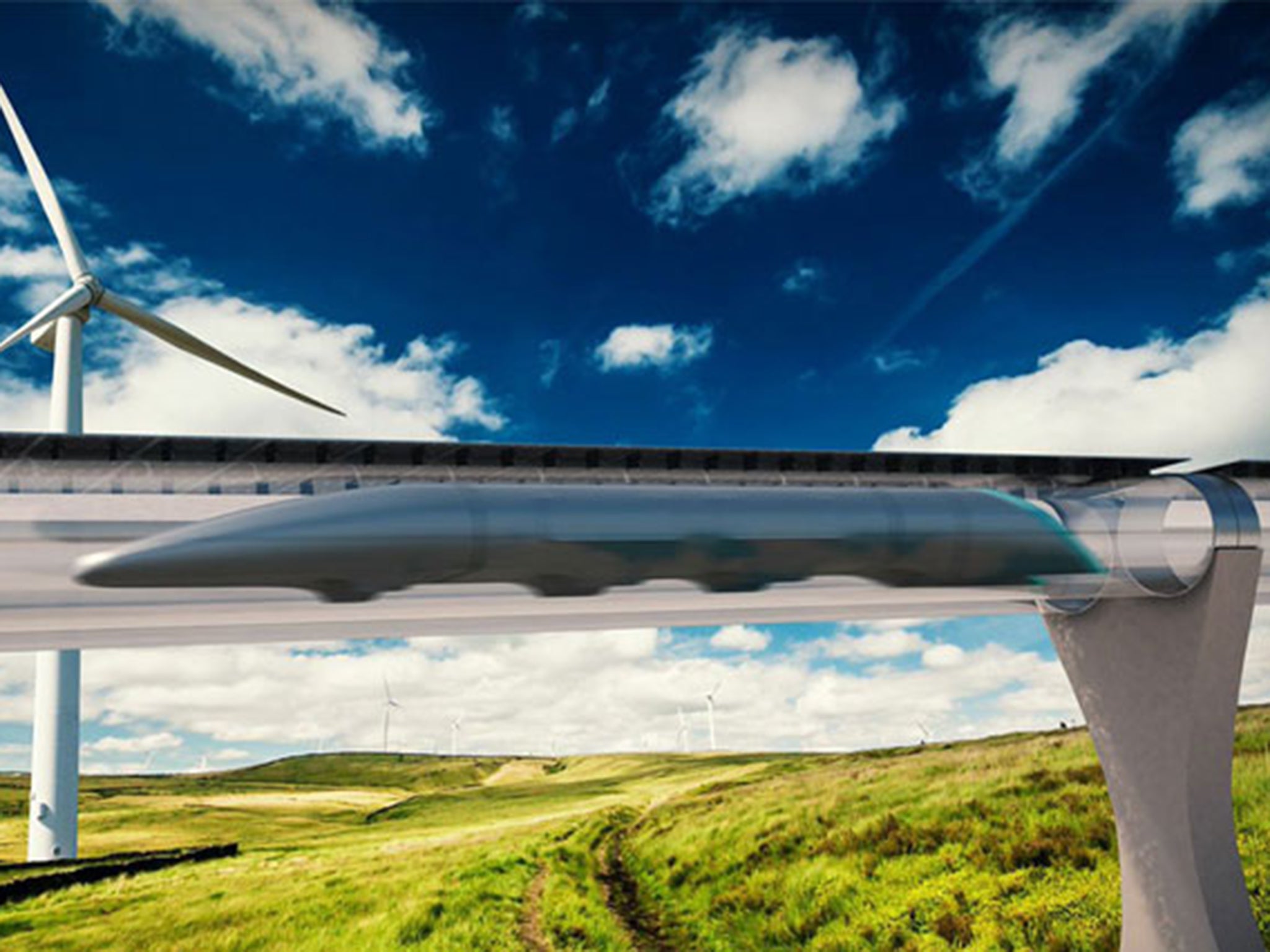French railways invest in 700mph inter-city 'hyperloop' super-tube train which could make HS2 obsolete
Hyperloop technology would shoot capsulesm or linked trains of capsules, containing passengers and cars through low pressure tube at up to 760 mph

Your support helps us to tell the story
From reproductive rights to climate change to Big Tech, The Independent is on the ground when the story is developing. Whether it's investigating the financials of Elon Musk's pro-Trump PAC or producing our latest documentary, 'The A Word', which shines a light on the American women fighting for reproductive rights, we know how important it is to parse out the facts from the messaging.
At such a critical moment in US history, we need reporters on the ground. Your donation allows us to keep sending journalists to speak to both sides of the story.
The Independent is trusted by Americans across the entire political spectrum. And unlike many other quality news outlets, we choose not to lock Americans out of our reporting and analysis with paywalls. We believe quality journalism should be available to everyone, paid for by those who can afford it.
Your support makes all the difference.The organisation running the French railway system are investing in a 700mph inter-city super tube train which could make HS2 obsolete before it its built.
The SNCF, creator of the high-speed train concept, have decided to invest Euros 80m in one of two American companies which are developing the “hyperloop”, a wheel-less train or capsule projected through a tube with relatively small energy needs.
The idea, first proposed in 2013 by the South African-born billionaire-inventor Elon Musk, has been gaining credibility and financial backing in recent months. A pilot scheme is due to be built in Nevada later this year.
The SNCF, which pioneered the TGV (train à grande vitesse) from 1981, is the first large European railway company to take the idea seriously. There are also vague plans to build a pioneer hyperloop system linking cities in Austria, Hungary and Slovakia.
Hyperloop technology would shoot capsules or linked trains of capsules, containing passengers and cars through low pressure tube at up to 760 mph. This is more than three times faster than a conventional high speed train and double the speed of most commercial air-liners.
The tubes could be placed underground in cities but would be erected on stilts in open country, possibly using the central reservation of existing motorways to save costs. Two competing American start-up companies which are developing the idea say that it would be much faster, cheaper to build, less intrusive and less greedy for energy than conventional steel-on-steel trains.
They hope to have the first system working – possibly linking Los Angeles and San Francisco in 30 minutes – within 15 years. This would be roughly the same time scale as the opening of the first section of Britain’s second high speed line HS2 which will link London and Birmingham by 2026.
Promoters claim that the 350-mile LA to San Francisco hyperloop would cost only £5bn to build – compared to an estimated £43bn for HS2 which is much shorter.

Sceptics suggest, however, that hyperloop might prove to be as ephemeral and impractical for long distance travel as other non-conventional train projects such as monorails and trains floating on magnetic track beds (Maglev).
The critics point out that the experience of being shot through a tube for half an hour or longer, without a view and without being able to move from one’s seat, might not appeal to everyone. They also point out that a hyperloop system would be able to link conurbations but – unlike a conventional high-speed train - would not be able to reach city-centre stations using existing tracks.
The chief executive of one of the two companies developing the idea – Dirk Ahlborn of Hyperloop Transportation Technologies – told a conference in New York on Tuesday that such objections would prove groundless.
“We’re trying to make travel suck less,” he said. “We’re trying to fix public transport.”
“Speed is one of the advantages (of hyperloop), but it’s not the only one. Building something that has economic sense, that has a good business model behind it, for me, is even more important.”
Hyperloop Transport Technologies signed an agreement with the Slovakian government earlier this year to explore the possibility of building a high-speed tube system which would link Bratislava, Budapest and Vienna.
The French railways have decided, however, to invest Euros 80m in another start-up, Hyperloop Technologies, which will open a test-track in Nevada by the end of this year.
The SNCF yesterday declined to discuss he investment, first reported by the French 24 hour news channel BFM TV. However, officials in the state-owned company confirmed that SNCF had decided to take part in a second round of fund-raising by Hyperloop Technologies.
In September of last year, Guillaume Pepy, the boss of SNCF, said: “Hyperloop is a project which is both far-fetched and visionary. We are watching it very closely.”
Join our commenting forum
Join thought-provoking conversations, follow other Independent readers and see their replies
Comments